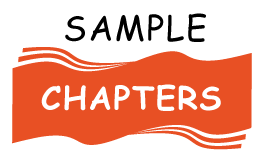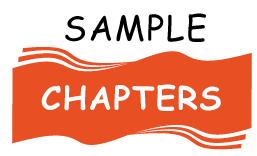Smart Promotion: Using Data to Drive Book Sales

In today's competitive book market, merely writing a great book isn't enough to ensure success. Effective promotion is essential, and the most effective promotion strategies leverage data. By using data-driven approaches, authors and publishers can target their marketing efforts, optimize their campaigns, and ultimately drive more book sales. This article delves into how you can harness the power of data to propel your book sales to new heights.
Understanding the Importance of Data in Book Promotion
Data-driven promotion is about making informed decisions based on real-world data rather than intuition or guesswork. This method provides insights into reader behavior, market trends, and the effectiveness of marketing strategies. By analyzing this data, you can tailor your promotional efforts to reach the right audience and increase your chances of success.
Key Data Points to Track
- Sales Data
- Daily and Monthly Sales: Tracking your sales data helps identify trends and measure the impact of promotional activities.
- Sales by Channel: Knowing which platforms (Amazon, Barnes & Noble, etc.) generate the most sales allows you to focus your efforts where they matter most.
- Reader Demographics
- Age, Gender, and Location: Understanding who your readers are can help you create targeted marketing campaigns.
- Reading Preferences: Insights into what genres and topics your audience prefers can guide your content creation and promotion.
- Website Analytics
- Traffic Sources: Knowing where your website visitors come from (search engines, social media, referrals) helps refine your marketing strategies.
- User Behavior: Analyzing how visitors interact with your website, such as which pages they visit and how long they stay, can highlight areas for improvement.
- Social Media Engagement
- Likes, Shares, and Comments: Monitoring engagement metrics on social media platforms can reveal what type of content resonates with your audience.
- Follower Growth: Tracking the growth of your social media following can indicate the effectiveness of your social media strategies.
- Email Marketing Metrics
- Open Rates and Click-Through Rates (CTR): These metrics show how effectively your emails are capturing the interest of your subscribers.
- Conversion Rates: Understanding how many email recipients purchase your book helps gauge the success of your email campaigns.
Strategies for Data-Driven Book Promotion
- Targeted Advertising
- Use data to identify your target audience and create customized ad campaigns on platforms like Facebook, Google, and Amazon.
- A/B testing different ad creatives and targeting options can help optimize your campaigns for better performance.
- Personalized Email Campaigns
- Segment your email list based on reader demographics and preferences to send personalized content.
- Use automation to send timely follow-ups and nurture leads through the sales funnel.
- Content Marketing
- Create blog posts, articles, and social media content that address the interests and needs of your target audience.
- Use SEO techniques to ensure your content ranks well on search engines and attracts organic traffic.
- Influencer Partnerships
- Collaborate with influencers and book bloggers who have a strong following within your target market.
- Use data to identify influencers who align with your brand and have high engagement rates.
- Promotional Events and Webinars
- Host virtual book launches, Q&A sessions, and webinars to engage with your audience and drive book sales.
- Use data to select the best times and platforms for these events to maximize attendance and impact.
Tools for Data-Driven Book Promotion
- Google Analytics
- Provides comprehensive insights into your website traffic and user behavior.
- Helps track the effectiveness of your promotional efforts and identify areas for improvement.
- Amazon KDP Reports
- Offers detailed sales and royalty reports for authors publishing through Amazon Kindle Direct Publishing (KDP).
- Helps monitor sales performance and make informed decisions about pricing and promotions.
- Facebook Insights
- Allows you to track engagement metrics and audience demographics for your Facebook page.
- Helps optimize your social media strategy to reach a larger audience.
- Mailchimp
- A powerful email marketing platform that provides detailed metrics on open rates, click-through rates, and conversions.
- Helps create targeted email campaigns and measure their success.
- Book Promotion Services
- Platforms like BookBub, Goodreads, and NetGalley offer promotional opportunities and analytics to track the performance of your campaigns.
- Helps reach a wider audience and gather valuable feedback from readers.
Conclusion
Using data to drive book sales is not just a trend but a necessity in today's digital age. By understanding and leveraging key data points, authors and publishers can create targeted, effective promotional strategies that yield tangible results. Whether you're an indie author or a large publishing house, embracing data-driven promotion can significantly enhance your book marketing efforts and drive more sales.
For more tips and strategies on book promotion, visit SampleChaps.com and explore our extensive resources for authors and publishers.
Call to Action
Are you ready to take your book sales to the next level? Start implementing data-driven promotion strategies today and watch your book sales soar! Share your experiences and success stories with us in the comments below or join our community of authors on SampleChaps.com.



